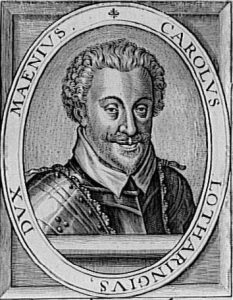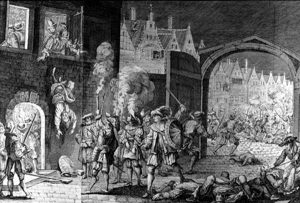François de Guise (1520-1563)
François de Guise was married to Anne d’Este, Louis XII’s granddaughter, and was appointed General Lieutenant of the Kingdom by Henri II. Taking Calais in 1558 ensured him a reputation as one of the best warlords of his time. His influence on the government of the Kingdom reached its apex under King François II. He became the leader of the Catholic party and was responsible for the massacre in Wassy in March 1562, which started the first war of Religion. He was assassinated on 18 February 1563 by a Protestant nobleman, Jean de Poltrot de Méré, while besieging Orléans.
Henri de Guise (1550-1588)
Duke of Guise and François’s son, he took part in the 2nd and 3rd wars of Religion, notably in the battle of Jarnac where Louis de Bourbon, first Prince of Condé, was killed. He was suspected of having ordered admiral de Coligny’s murder. He won the battle of Dormans in October 1575 against the mercenaries under the Palatine Count Jean-Casimir, during which he received the famous gash on his face. He took the lead of the League – the second nobility League. On 9 May 1588, in spite of Henri II’s ban, he triumphantly entered Paris. It was followed by the Parisians’ uprising against the king. The Edict of the Union of July 1588 made him General Lieutenant of the Royal troops. His growing power was a threat to the monarchy, Henri III was assassinated in Blois on 23 December 1588 for his crime of lese-majesty. His first brother, Louis, Cardinal of Lorraine (1555-1588) was executed the day after.
Charles de Lorraine (1554-1611)
The Duke of Mayenne was Henri’s second brother. He was Governor of Burgundy and succeeded his brother Henri as leader of the second League. In Paris he was outmanoeuvred by the Sixteen, but finally imposed his authority in late 1591. He surrendered to King Henri IV in January 1596.




